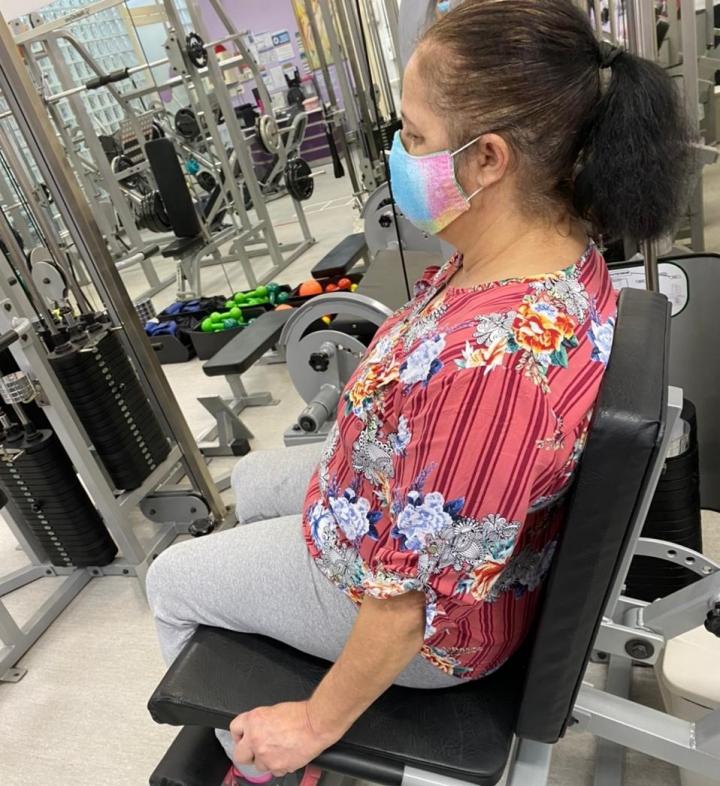People with diseases such as rheumatoid arthritis and lupus are more likely to have heart attacks, angina, and strokes. A review of the scientific literature on the subject shows that regular exercise improves vascular function in these patients

Credit: Diego Rezende
The risk of developing atherosclerosis – a narrowing of the arteries as cholesterol plaque builds up, leading to obstruction of blood flow – is higher for people with autoimmune rheumatic diseases than for the general population. As a result, they are more likely to have heart attacks and other cardiovascular disorders.
The good news, according to a new study published in Rheumatology, is that regular exercise is a powerful weapon against vascular dysfunction in these patients.
In the article, researchers working in Brazil and the United Kingdom report the results of a systematic review of the scientific literature on the subject. The review, which was supported by FAPESP, covered ten studies involving 355 volunteers with various diseases, such as rheumatoid arthritis, lupus, and spondyloarthritis (inflammation of the spine). The subjects took exercise programs such as walking in a park or on a treadmill, stationary cycling, high-intensity interval training, and muscle building. Most of the programs lasted 12 weeks.
“Our analysis of the results showed that exercise improved small and large vessel endothelial function to a clinically significant extent. Accordingly, we suggested that exercise can be considered ‘medication’ for these patients because of its potential to reduce the incidence of cardiovascular events,” said Tiago Peçanha, first author of the article. Peçanha is a postdoctoral fellow at the University of São Paulo’s Medical School (FM-USP) in Brazil.
These rheumatic diseases, he explained, are the result of an imbalance in the immune system that leads to the production of antibodies against the subject’s own organism, especially joints, muscles, ligaments and tendons. While there is no definitive cure for these diseases, they can be controlled by treatment with anti-inflammatory drugs, immunosuppressants, and biologics (drugs from living sources).
“Treatment doesn’t prevent patients from developing certain co-morbidities. Cardiovascular disease is the most worrisome,” Peçanha said. “The risk of heart attack is twice as high for people with rheumatoid arthritis as for healthy people. For people with lupus or psoriatic arthritis, the incidence of ischemic events [heart attack, angina and stroke] is between twice and five times as high.”
Atherosclerosis develops rapidly in these patients owing to the chronic inflammation associated with rheumatic disease and continuous use of anti-inflammatory drugs. “It all begins with changes in blood vessel structure and function,” Peçanha said. “The arteries gradually harden and stop being able to dilate when necessary. Changes occur above all in the endothelium [the layer of cells lining the interior surface of blood vessels]. Alterations in vascular function, especially endothelial function, are considered initial markers of atherosclerosis for this reason.”
The systematic review showed that exercise improved small and large vessel vascular function in patients with autoimmune rheumatic diseases. However, the authors note that given the small number of studies reviewed the evidence is not sufficient to state categorically that exercise also promotes a structural recovery of damaged arteries.
“This area [physical activity in rheumatology] is still new, so more research is needed to identify the best exercise protocols and investigate such aspects as safety and adherence,” Peçanha said. “In any event, the data in our study underlines the importance of regular exercise to prevent and treat cardiovascular disease in these patients.”
For people with rheumatic disease, as indeed for everyone else, Peçanha recommends at least 150 minutes of moderate to vigorous exercise per week. Aerobic exercise should predominate and be complemented by activities that foster strength and balance.
###
About São Paulo Research Foundation (FAPESP)
The São Paulo Research Foundation (FAPESP) is a public institution with the mission of supporting scientific research in all fields of knowledge by awarding scholarships, fellowships and grants to investigators linked with higher education and research institutions in the State of São Paulo, Brazil. FAPESP is aware that the very best research can only be done by working with the best researchers internationally. Therefore, it has established partnerships with funding agencies, higher education, private companies, and research organizations in other countries known for the quality of their research and has been encouraging scientists funded by its grants to further develop their international collaboration. You can learn more about FAPESP at http://www.
Media Contact
heloisa reinert
[email protected]
Original Source
https:/
Related Journal Article
http://dx.




